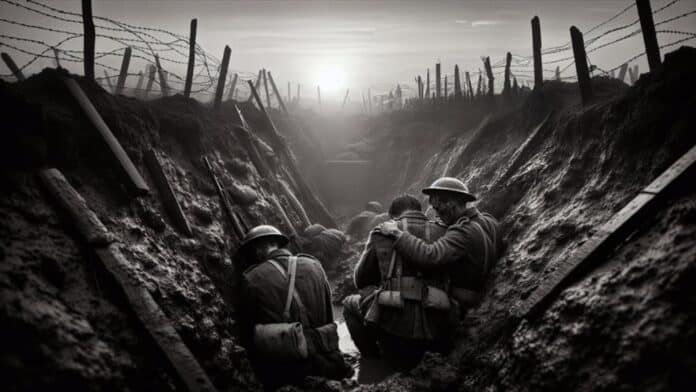World War II, which spanned from 1939 to 1945, remains one of the most significant and devastating conflicts in human history. Its impact reshaped the political landscape of the 20th century and led to unprecedented destruction. Understanding key facts about this war offers insight into how it unfolded and how it continues to influence the world today. Here are seven important facts that highlight the scope, devastation, and key events of World War II.
First, World War II officially began on September 1, 1939, when Nazi Germany, led by Adolf Hitler, invaded Poland. This aggressive expansionism prompted Britain and France to declare war on Germany, marking the beginning of a global conflict. Germany’s invasion of Poland was facilitated by the Molotov-Ribbentrop Pact, a non-aggression treaty between Nazi Germany and the Soviet Union. This pact allowed both powers to carve up Eastern Europe without fear of interference from the other, a situation that lasted until 1941 when Germany turned on its Soviet ally.
Second, the Axis Powers and the Allied Powers were the two main opposing factions in the war. The Axis, led by Germany, Italy, and Japan, sought to expand their empires and impose authoritarian control. Meanwhile, the Allies, which included major powers like the United States, the Soviet Union, and the United Kingdom, fought to halt their aggression. The war was fought across Europe, North Africa, and the Pacific, involving countries from every corner of the globe. This made World War II a truly global conflict, with battles ranging from the deserts of Africa to the islands of the Pacific.
Third, the attack on Pearl Harbor on December 7, 1941, was a pivotal moment in the war. Japan launched a surprise military strike on the United States’ naval base in Hawaii, bringing America into the conflict. This event marked a turning point, as the United States, with its vast industrial capacity and military might, joined the Allied cause. The U.S. played a critical role in both the European and Pacific theaters, helping to tip the balance in favor of the Allies over the course of the war.
Fourth, the Holocaust stands as one of the darkest chapters of World War II. The Nazi regime, driven by racist ideologies, systematically exterminated six million Jews in concentration camps across Europe, along with millions of other victims, including Romani people, disabled individuals, and political dissidents. The genocide, known as the Holocaust, revealed the horrific extent of Nazi brutality and remains a stark reminder of the consequences of hatred and unchecked power.
Finally, World War II ended with the dropping of atomic bombs on Japan in August 1945. After years of brutal fighting in the Pacific, the United States dropped atomic bombs on the cities of Hiroshima and Nagasaki, leading to Japan’s unconditional surrender. These were the first and only uses of nuclear weapons in warfare, bringing about the war’s swift conclusion but also igniting debates over the ethics of their use. The aftermath of the war set the stage for the Cold War, as the world’s powers grappled with the new realities of nuclear weaponry and geopolitical tensions.
These seven facts provide a broad overview of the complexity and scale of World War II. The conflict reshaped nations, led to immense human suffering, and forever altered the course of history.

